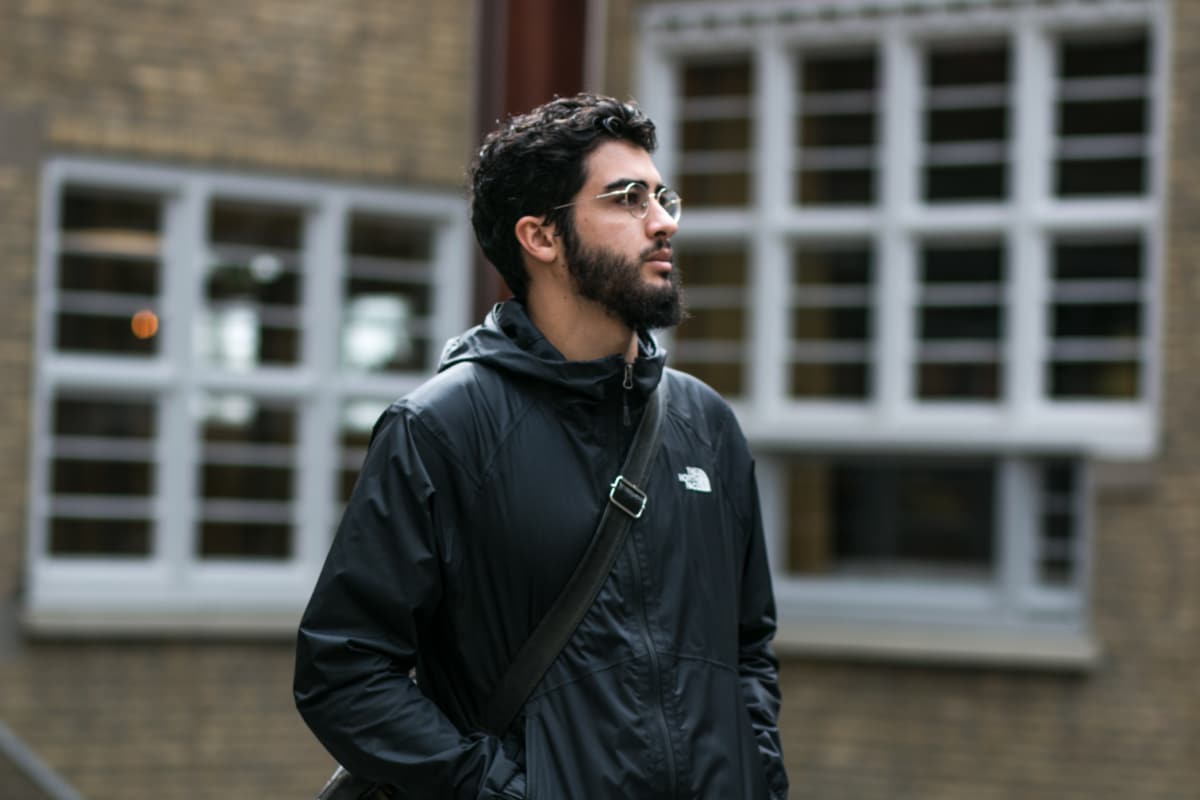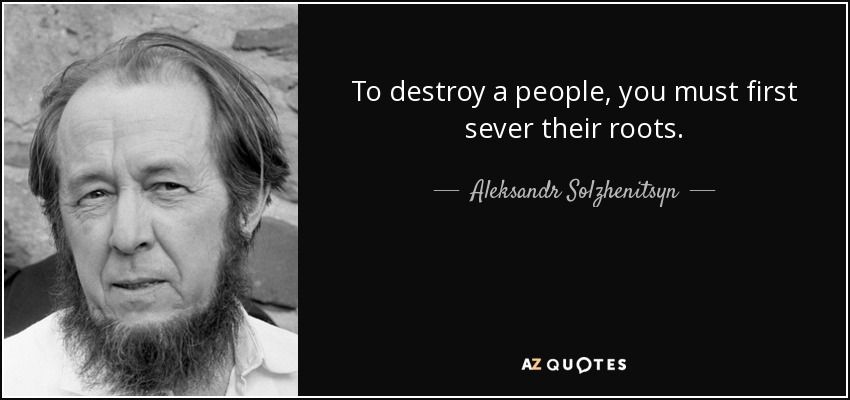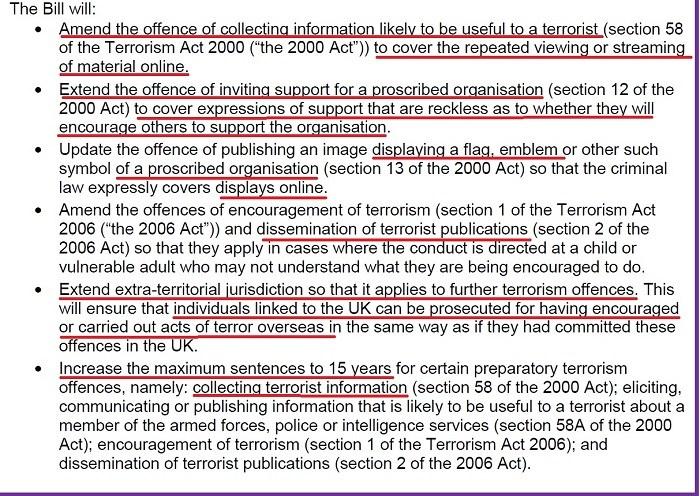Salaam
Heh, not a 'conspiracy theory' anymore.
Leaked State Department Memo Advised Trump Administration to Push for “Islamic Reformation”
The Trump administration, as part of a dual effort to counter both Iran and the Islamic State, should push for an “Islamic Reformation,” a State Department memo advised the White House last year.
The suggestion was ultimately not adopted as part of the National Security Strategy announced in December, but that a so-called reformation of Islam was up for discussion at the highest levels of the State Department and National Security Council underscores the extraordinary rise of a once-fringe, far-right approach to foreign policy. Were it to be adopted as official policy, it would mark a radical departure by directly inserting the U.S. government into a theological discussion that is carried out almost exclusively among anti-Muslim zealots.
“The goal against Iran and ISIS is to break each’s brand and Islamic extremism,” reads the document, which was obtained by The Intercept. “In seeking a public diplomacy means for undermining the ideological basis for supporting the current Iranian or ISIS structures, an emphasis on ‘Islamic Reformation’ should factor in heavily.”
The document, on the subject of “ideological competition,” was submitted to the White House National Security Council by the State Department Policy Planning Staff in the summer of 2017 — a period in which the NSC was drafting the Trump administration’s National Security Strategy. The State Department at the time was helmed by Rex Tillerson, who distanced himself from President Donald Trump’s anti-Islam rhetoric. Mike Pompeo assumed leadership in April, and his track record as an anti-Muslim ideologue has many worried about the State Department’s approach to Islam.
A State Department official confirmed the authenticity of the memo and told The Intercept that the paper was “one of dozens” of documents that helped inform the framing of the National Security Strategy. “As with all pre-decisional documents designed to stimulate discussion, a healthy dose of skepticism is appropriate as to how much of a single thought or phrase from the document survived debate and discussion,” the official wrote. “‘Islamic Reformation’ is a phrase that has been used and debated by analysts of Muslim world for decades, and was used in the article as an historical analogy, not a policy prescription.”
Founded in 1947, the Policy Planning Staff is the department’s in-house think tank. It is headed by the hawkish former Bush administration official Brian Hook, who was in charge at the time the memo was produced. According to the department’s website, Hook and his team “take a longer term, strategic view of global trends.” The document was finished shortly after Hook had purged career staffers he considered to be insufficiently loyal to Trump or too friendly with Iran. Sahar Nowrouzzadeh, for instance, was pushed out of Hook’s policy department following a right-wing smear campaign that questioned her loyalty to the United States, reporting falsely that she was born in Iran.
The policy shop, shorn of expertise and stocked with ideologues, is now producing material unlike anything it has before, according to a range of former State Department, Pentagon, and NSC officials, advisers, and lawyers consulted by The Intercept. They said that they had never seen the contentious and inflammatory phrase “Islamic Reformation” — a call for a Martin Luther-like figure to bring Islam into modernity that is rooted in tropes that presume Islam to be inherently violent and backward — used in an official U.S. government document before.
The lack of expertise comes through in the memo. “Iran is under increasing political and military pressure, giving support to domestic oppositional forces in both ISIS-held territory and within Iran. [U.S. government] ideological activity should find greater receptivity in such an environment,” the memo suggests. But the Shia ayatollahs of Iran and the Sunni militants of ISIS are openly hostile to each other, rendering the analysis nonsensical.
“These people are curating crap” from the far-right, anti-Muslim blogosphere, said a separate senior U.S. government official, referring to the unnamed authors of the State Department paper. (The official spoke on condition of anonymity as they are not authorized to discuss these matters.)
The document goes into detail about how to bring about this so-called reformation, including a remarkable passage acknowledging the cynical use female empowerment as a means to further the goals of American empire. “Two practical target groups for this approach are women and youth, though they are by no means the only potential targets. Focusing on female-empowerment as the primary information messaging goal within the Islamic-influenced world will allow the United States to maintain a moral component for American power and its liberation narrative,” it reads.
“Demands for an Islamic Reformation are nothing new,” wrote Todd Green, an associate professor of religion at Luther College and a former U.S. State Department adviser on Islamophobia, in September 2017. “They have fueled the careers of some of the most prominent anti-Islam activists in the West today.” For example, conservative writer and ex-Muslim Ayaan Hirsi Ali, who has expressed support for the Trump administration’s so-called Muslim ban, published the book “Heretic: Why Islam Needs a Reformation Now” in 2015.
Peter Mandaville, a former member of the Policy Planning Staff under Secretary of State Hillary Clinton, told The Intercept there were a number of “political, intellectual, and legal” problems with the “Islamic Reformation” proposal. “First, the United States government has no standing to be taking positions on matters of Islam, or what is or is not a correct … understanding of a world religious tradition,” said Mandaville, a professor at George Mason University and the author of “Islam and Politics.”
“Second, the U.S. government pointing to a particular interpretation of religion, pointing to a particular religious scholar, and saying, ‘Hey, this guy, he is awesome, follow this guy’ would most likely have the effect of wrecking any standing that individual had. Third, the U.S. Constitution forbids the federal government from undertaking any kind of activity that expresses a preference for any particular religion or any particular interpretation of religion.”
Robert Tuttle, professor of law and religion at the George Washington University Law School and an expert on the Establishment Clause, said that “the United States government does not express its views on religious matters.”
It is not settled, however, whether the Establishment Clause applies to U.S. foreign policy. “You could argue that the Establishment Clause doesn’t apply overseas, instead it only applies domestically,” said Tuttle, author of the book, “Secular Government, Religious People.” “I don’t think that’s a very good argument and the Supreme Court has not settled the debate.”
Case law on the question is sparse, but a 1991 decision from the 1st Circuit held in Lamont v. Woods that “the operation of the Establishment Clause strongly indicates that its restrictions should apply extraterritorially.”
The Trump administration, of course, has already weighed in theologically in its own way. Trump ran for president on a platform of banning Muslims from the U.S. and one of his favorite phrases on the campaign trail was “radical Islamic terrorism.” He badgered his opponent Hillary Clinton, as well as former President Barack Obama, for avoiding the term, suggesting that uttering those words out loud would conjure up a patronus of sorts to counter the dark-spirited Dementors committing violence in the name of Islam.
“A Horrendous Idea”
In addition to the issue of legality, there are fears that the Policy Planning Staff’s “emphasis on an ‘Islamic Reformation’” could backfire on the United States and do more harm than good.
“The idea of the United States promoting some sort of reform of Islam as a tool of foreign policy is a horrendous idea,” Green told The Intercept. “The last thing the United States needs to be doing is intervening in internal theological debates within Muslim communities, irrespective of whether those communities are located in Iran or here in the United States.”
For Green, the U.S. government delving into Islamic theology and “deeming which Muslims are acceptable and which are not” gets into “dangerous territory.” “Frankly, if you want to discredit those groups, the first thing you could do is prop them up and say, ‘This is the theologically correct version of Islam.’”
Qamar-ul Huda, a former senior policy adviser in the State Department’s Office of Religion and Global Affairs under both Obama and, for the first half of 2017, Trump, agreed with Green. “This could be taken the wrong way, as some sort of an agenda to subvert Muslim societies,” said Huda, who is Muslim and has an academic background in Islamic studies. “On the ground [in the Muslim-majority world], it will feed into the sense that the U.S. is turning into an anti-Muslim, Islamophobic country.”
At the height of the war on terror discourse, during the George W. Bush era, polls suggested that majorities of Egyptians, Pakistanis, Indonesians, and Moroccans believed that the United States was trying to weaken and divide the Muslim-majority world. Any evidence that members of the Trump administration, many of whom have strong ties to far-right, anti-Muslim groups, want to “reform” Islam could provoke similar concerns, and a backlash in Muslim communities and countries across the world.
A former senior U.S. diplomat who served in Afghanistan told The Intercept: “For a lot of people in the region, it will confirm their suspicions and conspiracy theories. When the leadership is bandying around these ideas, it sort of wipes out a lot of the good work that is being done on the ground [by U.S. diplomats].”
“This good Muslim/bad Muslim narrative … is a slippery slope,” said the former diplomat, who pointed to U.S. policymakers’ conflation of “Sunni and Shia groups together” as evidence of their inability to understand the basics of Islam, let alone reform it.
Distraction From Self-Examination
Huda suggested that the authors of the document lack religious literacy and are “very myopic.”
“I think there’s an unfortunate assumption by those in the policy world that … if you’re more religious or Islamically religious … you are more prone to radical thinking,” he said. “That’s nonsense because there’s no study I know of that shows the more religious you are, the less you become open for dialogue, and I’ve been studying this for 30 years.”
The assumption that Islam is the root cause of violence is “flawed,” Green agreed, and “reflects the shallow thinking that continues to infect far too many sectors of the U.S. government when it comes to the drivers of violent extremism.” According to “The Fear of Islam” author, “Most scholars who study terrorism and violent extremism argue that political and social conditions are the most important factors driving this violence. Islam certainly gets instrumentalized in this violence, but that’s different than claiming it is the cause.”
“Calling for an Islamic reformation has very little to do with what Muslims are or are not doing in terms of reform,” added Green. “It’s a distraction. As long as we focus on what Muslims need to be doing, we don’t need to do any self-examination of our own foreign policy and our role in the rise of violent extremism abroad.”
The Trump administration, however, has been keen to focus on the role that Islamic ideology, rather than geopolitical or socio-economic factors, supposedly plays in fomenting extremism and violence. The phrase “Islamic reformation” was not ultimately included in the final National Security Strategy, which was published in December 2017 and committed the United States to battling “jihadist terrorists.” Still, its inclusion in the State Department submission reflects the broader “thinking” on this issue of influential Trump administration officials, according to the senior U.S. government official who spoke with The Intercept.
The official pointed out that the environment today is much more favorable to such an ideology-heavy agenda, given the sacking of more moderate, less Islam-obsessed figures such as Tillerson and former national security adviser H.R. McMaster, and the new “top cover” provided to anti-Islam ideologues inside the administration. Hook, who runs the policy department, has only seen his stature rise as more ideological allies have filled the building.
Green also highlighted the role played by a fringe far-right, anti-Muslim “Islamophobia network,” which has been mainstreamed by the Trump administration, in pushing conspiratorial and bigoted ideas about Islam and Muslims, from “no-go zones” to mass rape hysteria. “The secretary of state and the national security adviser have strong ties to this network,” he said, referring to Pompeo and John Bolton, respectively.
McMaster tried on multiple occasions to convince Trump to resist using language that conflated Islam with terrorism. The president fired McMaster in March and replaced him with hawkish neoconservative Bolton, the former chair of an anti-Muslim think tank.
“McMaster and Tillerson weren’t convinced of this [Islamic reformation] argument,” the U.S government official said. “Now you have Pompeo and Bolton who live and breathe this stuff.”
https://theintercept.com/2018/06/18/...dministration/




 Quote
Quote





 -
- Hide
Hide Looks like you're enjoying the discussion, but you're not signed up for an account.
Looks like you're enjoying the discussion, but you're not signed up for an account.

Bookmarks